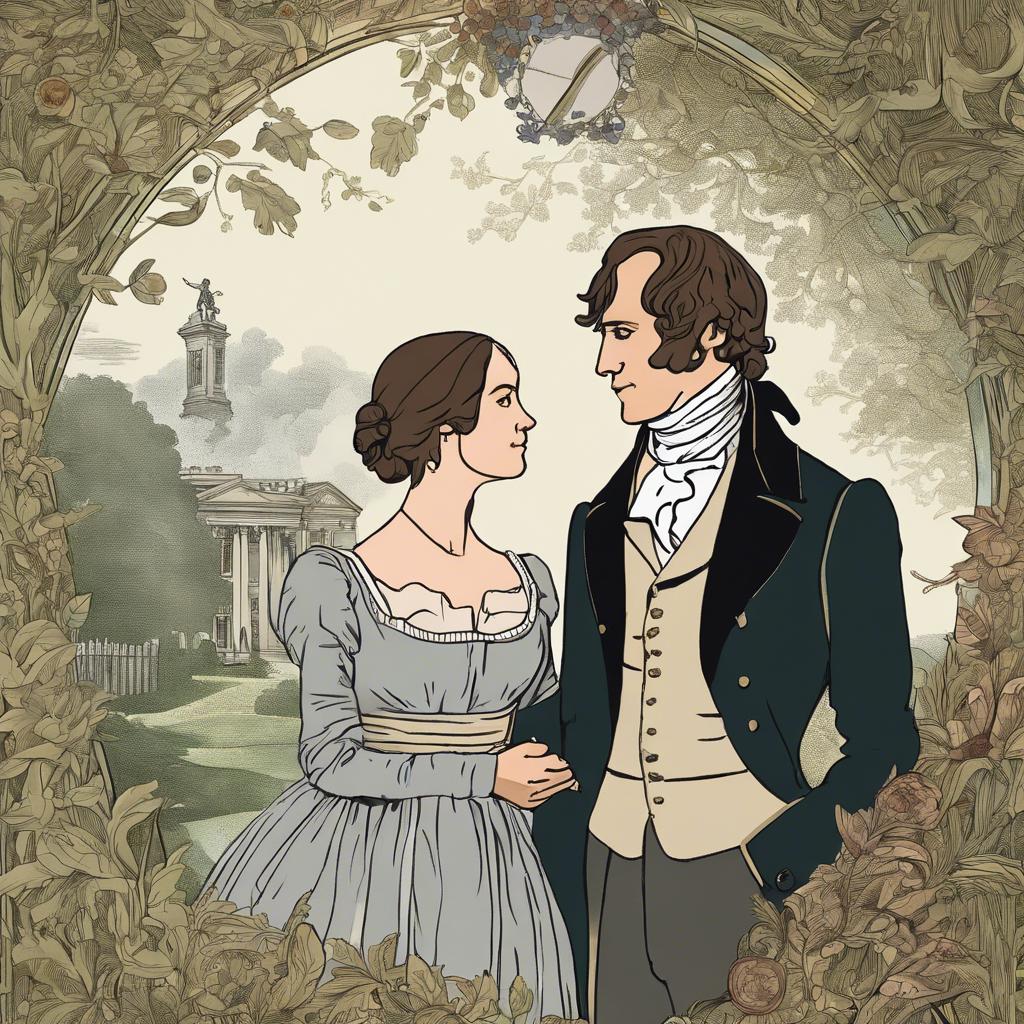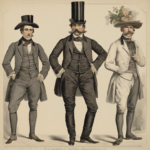In the annals of English literature, few characters have captured the hearts and imaginations of readers quite like Mr. Collins from Jane Austen’s timeless novel “Pride and Prejudice.” A man of contradictions and complexities, Mr. Collins embodies the social norms and values of early 19th century England, while also serving as a satirical commentary on the rigid class structures of the time. In this article, we delve into the character of Mr. Collins, exploring his motivations, relationships, and significance within the context of Austen’s acclaimed novel. Join us on a journey through the world of “Pride and Prejudice” as we uncover the layers of Mr. Collins’ persona and the role he plays in the enduring legacy of this literary masterpiece.
Step Into the World of Cheryl Bolen
Dive into the enchanting stories of love, intrigue, and elegance set in the Regency Era. Cheryl Bolen's novels offer timeless romance and captivating tales that will leave you wanting more.
Explore Cheryl Bolen's Books Now
Introduction:
Mr. Collins is a character in the famous novel “Pride and Prejudice” written by Jane Austen. He is portrayed as a comical and obsequious character, who serves as a source of comic relief in the novel. Mr. Collins is a clergyman who is primarily concerned with advancing his own social status and making a good impression on others, especially his wealthy relatives, the Bennet family.
One of the most memorable scenes involving Mr. Collins is when he proposes to Elizabeth Bennet, much to her shock and amusement. Despite Elizabeth’s clear rejection of his proposal, Mr. Collins remains oblivious to her feelings and continues to press his suit, citing financial stability and societal expectations as reasons for why they would make a good match.
Throughout the novel, Mr. Collins’s character provides a satirical commentary on the social norms and conventions of the time, particularly regarding marriage and social status. His interactions with the other characters, particularly Elizabeth and Mr. Darcy, highlight the absurdity of these societal expectations and norms, making him a memorable and important figure in “Pride and Prejudice.”
The role of Mr. Collins in Jane Austens Pride and Prejudice: A nuanced analysis
In Jane Austen’s Pride and Prejudice, Mr. Collins plays a crucial role in the novel, adding layers of complexity to the storyline. His character is often seen as pompous and obsequious, but a closer analysis reveals a more nuanced portrayal.
Mr. Collins serves as a satirical representation of the social norms and conventions of his time. Through his interactions with the Bennet family, especially his overbearing proposal to Elizabeth, Austen highlights the absurdity and superficiality of the marriage market in the early 19th century.
Despite his flaws, Mr. Collins also brings comic relief to the narrative, with his obliviousness and lack of self-awareness providing moments of light-hearted humor. His presence serves as a foil to the more respectable characters in the novel, offering a contrast that emphasizes their virtues and qualities.
Social standing and ambitions: Understanding Mr. Collins character development
In Pride and Prejudice, Mr. Collins is portrayed as a character whose social standing and ambitions greatly influence his development throughout the novel. From the very beginning, Mr. Collins is depicted as a man who is overly concerned with his place in society and with advancing his own status.
One aspect of Mr. Collins’ character that reflects his social standing is his relationship with Lady Catherine de Bourgh. As a clergyman, Mr. Collins is in a position of servitude to Lady Catherine, who holds a higher social status. His obsequious behavior towards her highlights his desire to align himself with those of higher standing in order to elevate his own position in society.
Furthermore, Mr. Collins’ ambitions are made evident in his pursuit of a wife. He sets his sights on Elizabeth Bennet, not out of love or genuine affection, but because he believes that marrying her will bring him social and financial benefits. His lack of true understanding of love and his prioritization of societal expectations over personal happiness ultimately lead to his own downfall.
Mr. Collins as a foil to other characters: Insights into his relationships and interactions
In Pride and Prejudice, Mr. Collins serves as a stark contrast to other characters, particularly Mr. Darcy and Elizabeth Bennet. His relationships and interactions with those around him shed light on the societal norms and values of the time. One key aspect of Mr. Collins’s character is his obsequious nature, constantly seeking approval and validation from those in positions of authority. This is evident in his interactions with Lady Catherine de Bourgh, whom he practically worships.
Moreover, Mr. Collins’s awkward and insincere attempts at flattery and social niceties showcase the artificiality and superficiality of the society in which he operates. His interactions with Elizabeth Bennet highlight her strong-willed nature and independent spirit, as she refuses his proposal despite the potential financial security it would provide. This refusal underscores Elizabeth’s commitment to marrying for love rather than convenience, a sentiment that stands in stark contrast to the practical considerations that guide Mr. Collins’s decisions.
Mr. Collins serves as a foil to characters like Mr. Darcy and Elizabeth Bennet, highlighting their integrity, wit, and authenticity in contrast to his own artificiality and subservience. Through his relationships and interactions, readers gain valuable insights into the societal expectations and values of the time, as well as the importance of personal integrity and sincerity in matters of love and marriage.
Recommendations for readers: How to appreciate the complexity of Mr. Collins character in Pride and Prejudice
One of the most intriguing characters in Jane Austen’s Pride and Prejudice is Mr. Collins, the awkward and obsequious clergyman who proposes to Elizabeth Bennet. To truly appreciate the complexity of Mr. Collins’ character, readers must delve deeper into the nuances of his motivations and behavior.
First and foremost, it is important to understand Mr. Collins’ social climbing tendencies. As a clergyman, he is not born into wealth or nobility, so he seeks to elevate his status by aligning himself with Lady Catherine de Bourgh. This explains his fawning and sycophantic behavior towards her, as well as his desperate attempts to secure a wife with connections.
Moreover, Mr. Collins’ lack of self-awareness and obliviousness to social cues further complicates his character. His pompous and self-important demeanor, combined with his complete lack of insight into how he is perceived by others, makes him both comical and pitiable. By examining these aspects of Mr. Collins’ personality, readers can gain a deeper appreciation for Austen’s satirical portrayal of social hierarchy and manners in Georgian England.
To Wrap It Up
Mr. Collins in “Pride and Prejudice” serves as a fascinating character whose pride and self-importance provide insight into the social dynamics of 18th century England. Through his interactions with the rest of the characters, we are able to see the pitfalls of vanity and the importance of humility. As we reflect on Mr. Collins and his place in Jane Austen’s timeless novel, we are reminded of the enduring relevance of this classic work of literature. Thank you for joining us on this exploration of Mr. Collins and his role in “Pride and Prejudice.”


